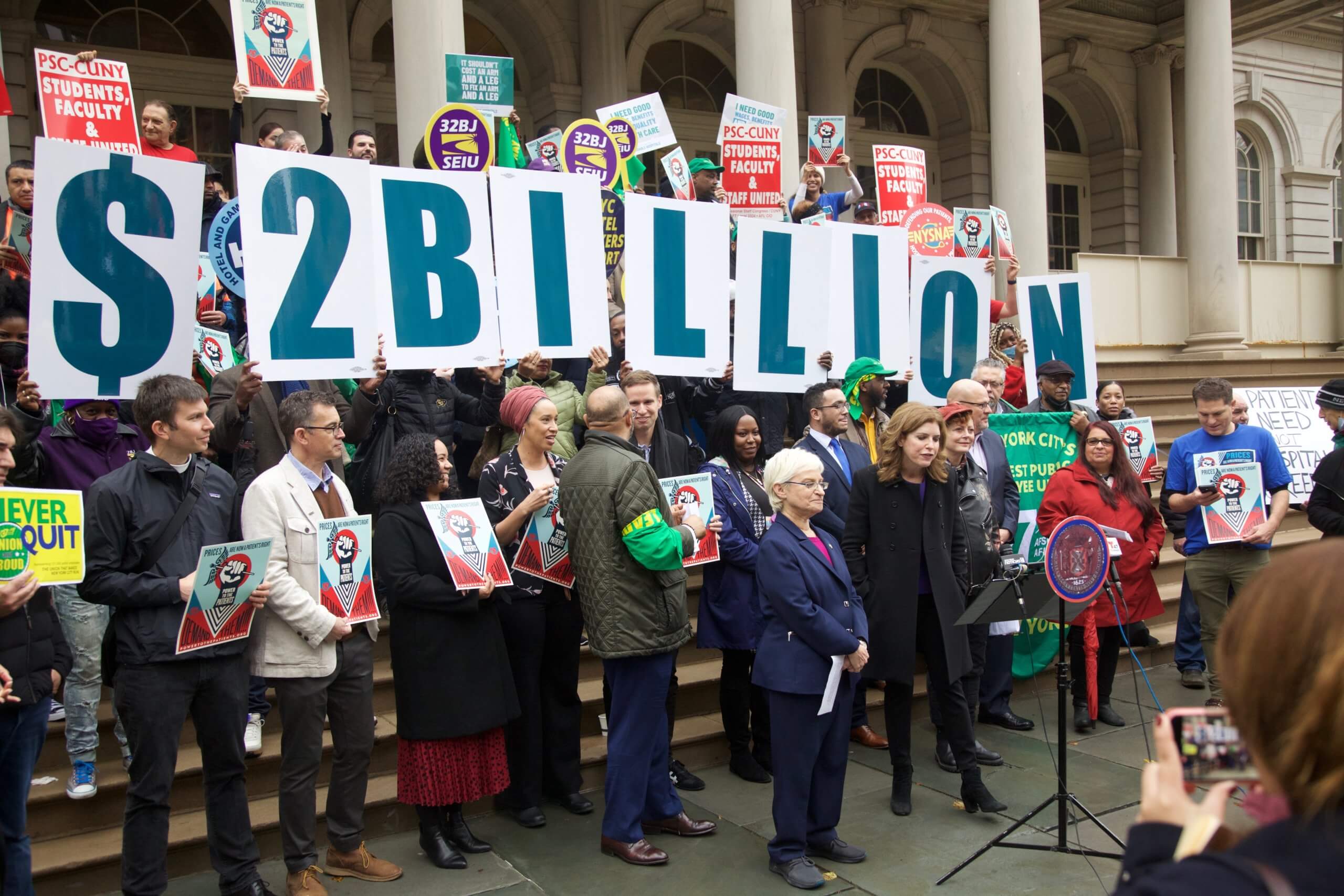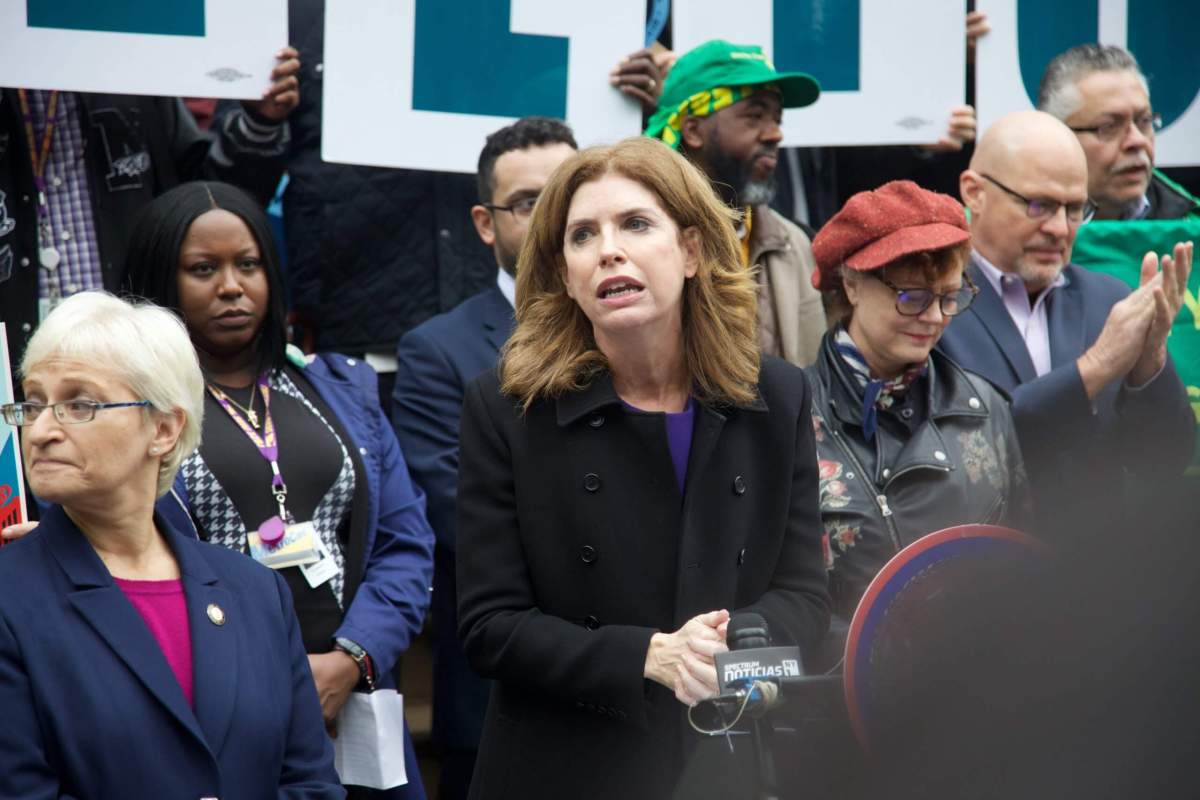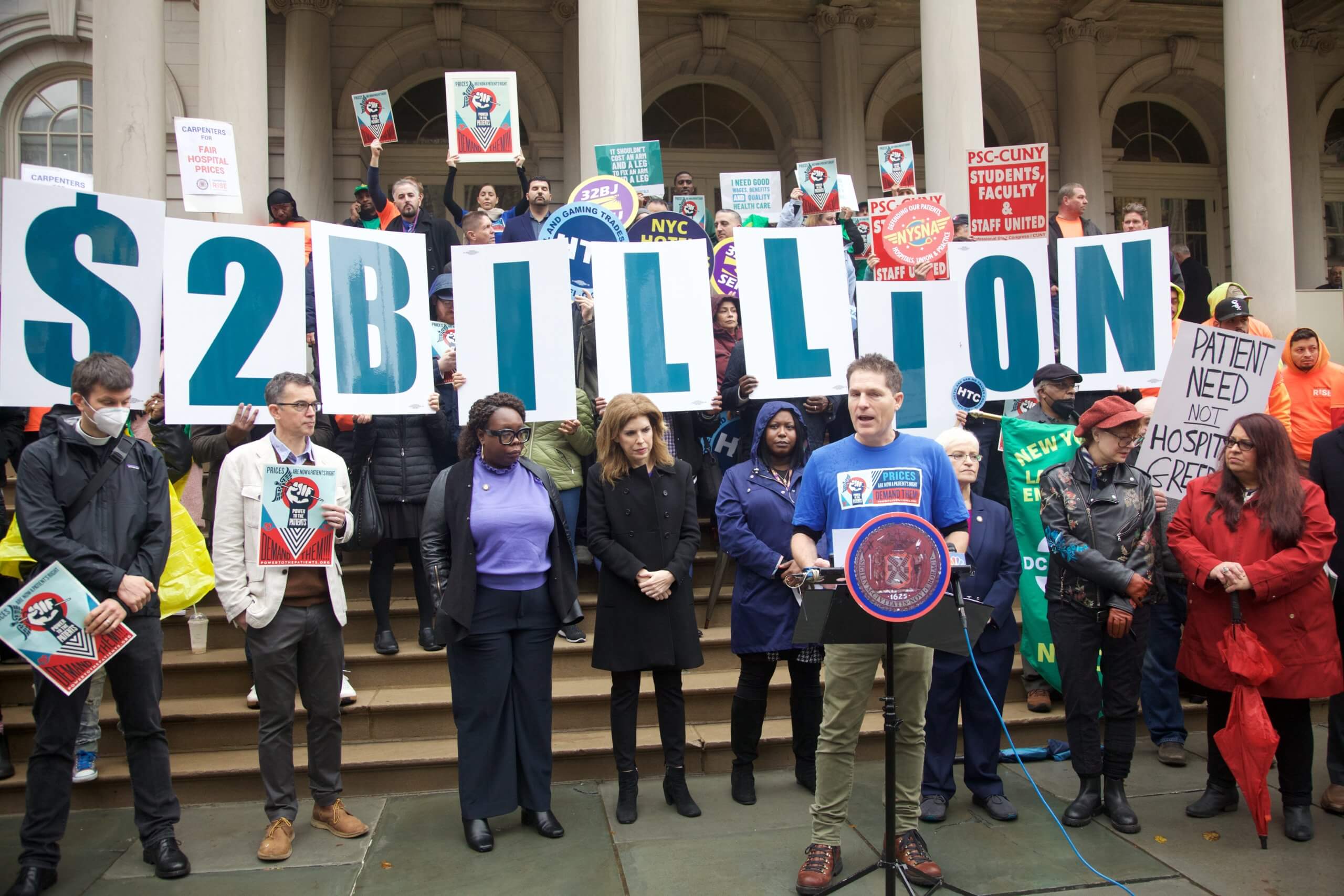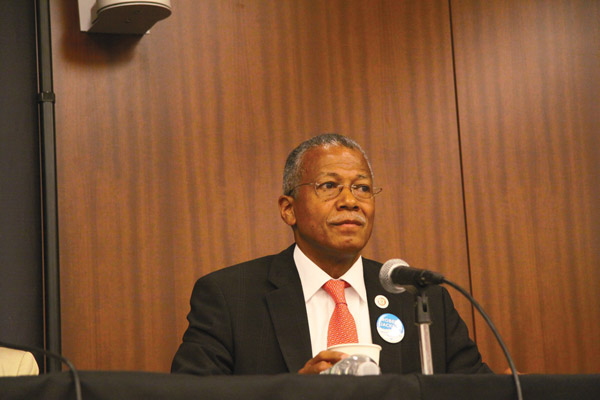A substantial group of City Council lawmakers joined public sector unions, healthcare advocates and even actress and activist Susan Sarandon in front of City Hall Wednesday to push for a bill that would create a city watchdog in charge of hospital price transparency.
“Now is the time to stop these inflationary prices and stop the hospitals from reaping billions of dollars from our friends and labor, from the private sector and from the city of New York,” said Julie Menin, the bill’s prime sponsor.
Menin’s legislation would establish a city Office of Healthcare Accountability (OHA), which would be in charge of auditing city expenditures on public employee-related healthcare costs and monitoring hospital compliance with pricing transparency measures.
The new office would also be tasked with operating a public website that provides information on the costs of hospital procedures and summarizes the cost transparency of each hospital.
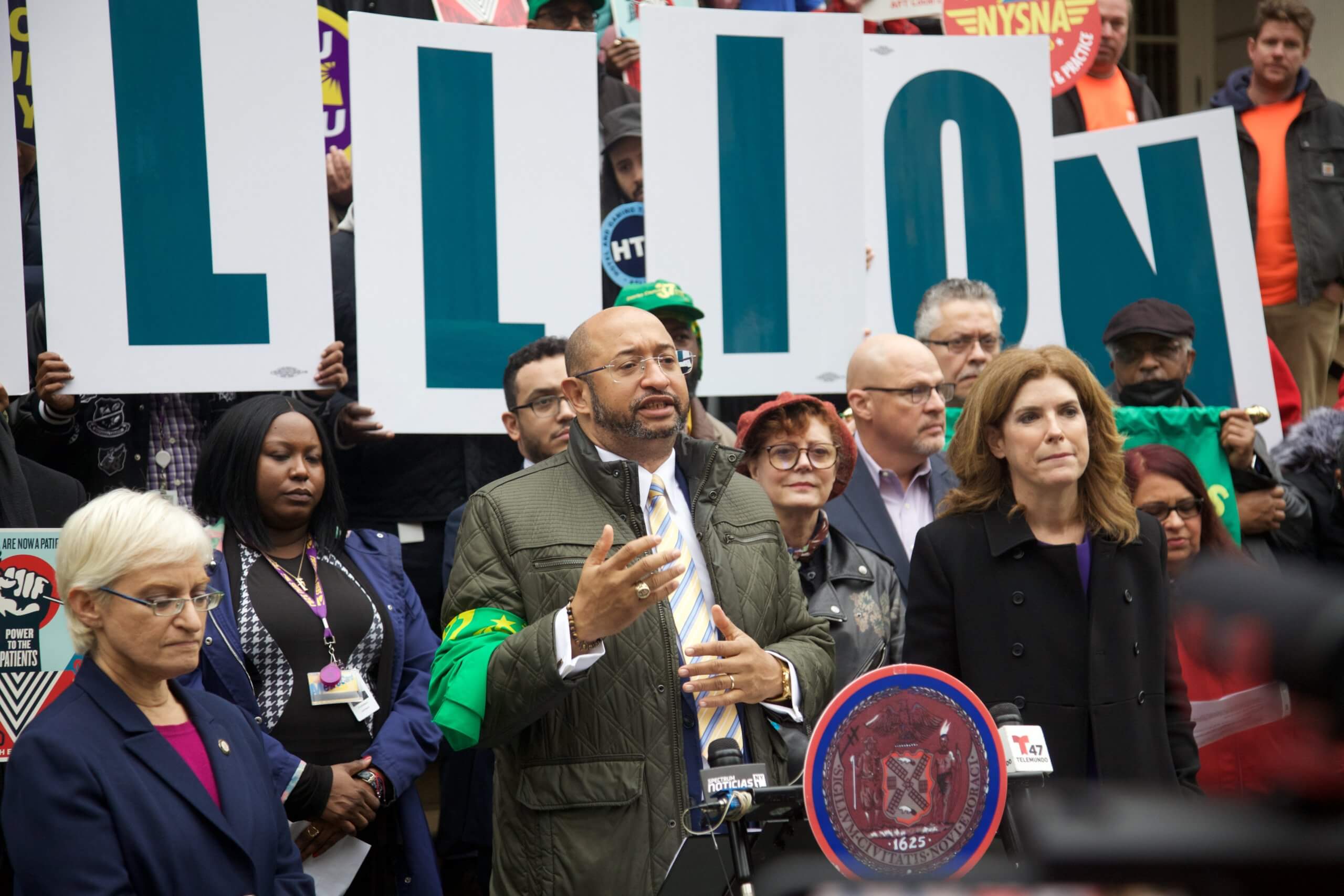
The idea for the bill builds off of a new federal rule called the Hospital Price Transparency Rule, which went into effect last year and mandates that every single hospital in this country post all of their prices. But even with that law in play, an August report from a healthcare advocacy group estimated that only 16 percent of hospitals in compliance with all of the price transparency rule requirements.
“If you’re a woman in New York City and you’re going to give birth and you need a C-section at one hospital, guess what? You’re paying $55,000. At another hospital, $20,000. That is outrageous for the exact same procedure,” Menin said at the rally.
Menin’s office argued in a background statement that inflated hospital costs are the single most impactful reason for healthcare cost increases, and for public sector workers this costs the city billions of dollars. The legislation was informed by a recent report, commissioned by the 32BJ union, which found that the city could be overpaying private hospitals by $2 billion annually.
As a part of its audit of public employee health benefits, OHA would collect the rate of reimbursement that hospitals receive from health insurance providers for each procedure. Pat Kane, the executive director of the New York Nurses Association, told amNY that this information would help the city work with insurance providers and the coalition of municipal labor unions that negotiate over health benefits to create a “value-based” healthcare network for city employees.
“Before the [federal] transparency law, we couldn’t see what those prices actually were. Now we can see what this hospital is charging. So it just makes fiscal sense, right? To design a network that would save the city money and get workers better care,” said Kane.
Supporters at the rally included members of some of the city’s largest unions: 32BJ, DC37, UFT, NYC District Council Carpenters, NYSNA, UFCW and UAW. Less than a day after being introduced the bill gained considerable support of Menin’s colleagues, amassing 17 Council sponsors, including Council Health Committee Chair Lynn Schulman.
It had also garnered opposition from private healthcare industry players even before it was introduced. The Greater New York Hospital Association, a trade group representing a number of private hospitals, told the New York Post the bill is “bad public policy,” and said that several hospitals already provide online price calculators as a way to comply with the federal law.
“This is something that’s long been in the works and there’s a lot of resistance particularly from the private sector not to do this. And we have to because people are dying and getting sick and because they can’t afford healthcare,” Schulman told amNY.
